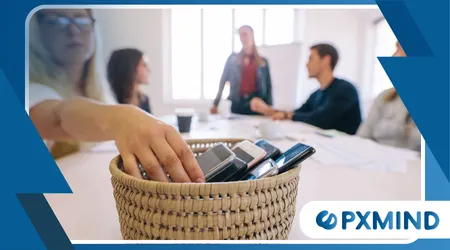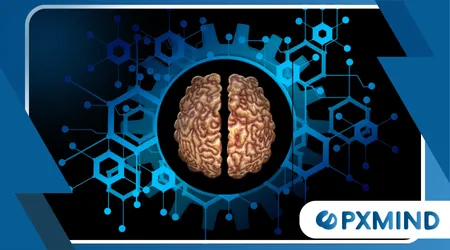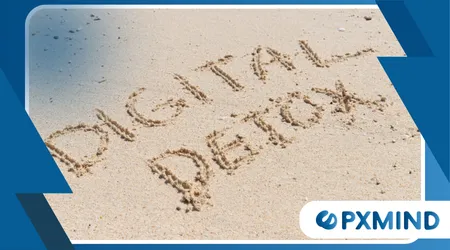Digital Detox: Why Your Brain Needs It

Digital Detox: A modern necessity. In a world saturated with screens, our brains are perpetually on overdrive, processing an endless stream of notifications, emails, and social media feeds.
Anúncios
This constant connectivity, while offering convenience, exacts a heavy toll on our cognitive and mental health.
The concept of a digital cleanse is no longer a trend; it’s a vital practice for our well-being.
By intentionally disconnecting, we can reclaim our focus and find clarity in a chaotic world.
The Neurological Impact of Constant Connectivity
Our brains are wired for connection, but not for the kind of relentless, high-speed input that digital devices provide.
The constant stream of information from our screens overstimulates the prefrontal cortex, the part of the brain responsible for decision-making and problem-solving.
This cognitive overload can lead to a state of perpetual distraction, making it difficult to concentrate on a single task for an extended period.
Think of your brain as a smartphone running dozens of apps in the background. Eventually, the battery drains, and the device slows to a crawl.
Our dependency on digital dopamine hits is another significant issue.
Every “like,” “share,” or new notification triggers a small release of dopamine, a neurotransmitter associated with pleasure and reward.
This creates a feedback loop similar to that of addiction, where we constantly seek out new digital interactions to get our next fix.
This craving for instant gratification can diminish our ability to enjoy slower, more meaningful activities, like reading a book or having a deep conversation.
The constant anticipation of the next notification keeps our minds in a state of hyper-arousal, leading to chronic stress and anxiety.
Understanding the Signs of Digital Overload
You might be experiencing digital burnout without even realizing it. Are you unable to leave your phone in another room for more than a few minutes?
Do you feel anxious when you don’t have access to Wi-Fi? These are common indicators that your relationship with technology might be unhealthy.
The feeling of “phantom vibrations,” where you believe your phone is buzzing when it isn’t, is a real phenomenon and a clear sign of our psychological attachment to these devices.
Read here: Journaling for Mental Clarity: A Beginner’s Guid
Consider this: A 2024 study by the Pew Research Center found that 40% of adults feel that their smartphones have a negative impact on their mental health.
Yet, many still find it difficult to disconnect.
This statistic highlights a significant disconnect between our awareness of the problem and our willingness to change our habits. It’s an urgent call to action.

| Symptoms of Digital Overload | Potential Solutions |
| Difficulty concentrating | Schedule screen-free time |
| Feeling anxious or irritable | Practice mindfulness and meditation |
| Sleep disturbances | Avoid screens before bed |
| Social withdrawal | Prioritize in-person interactions |
Reclaiming Your Time and Attention
Engaging in a digital detox is a deliberate act of self-care. It’s not about abandoning technology forever, but about creating a healthier, more balanced relationship with it.
Start small. For example, designate certain times of the day or week as completely screen-free.
A common and effective practice is to avoid screens for the first and last hour of your day.
See how interesting: How to Protect Your Peace in a Noisy World
Instead, use this time to reflect, read a physical book, or simply enjoy a cup of coffee in silence.
Another simple but effective strategy is to turn off non-essential notifications. This prevents your phone from constantly interrupting your focus.
An excellent real-world example is to use your phone’s “Do Not Disturb” feature during work hours or family time.
By doing this, you’re not missing important calls, but you’re also not being pulled away by every new social media alert.
The Transformative Benefits of Disconnecting
The benefits of a well-executed digital detox are profound. Disconnecting can significantly improve your focus and concentration, as your brain is no longer constantly jumping between tasks.
By reducing the visual and cognitive noise, you create space for deeper, more creative thought. It’s like clearing a cluttered desk so you can finally start that important project.
A break from the digital world can also boost your creativity.
When you’re not scrolling through endless feeds of curated content, your mind is free to wander and generate new ideas.
++ Why We Imitate Others Without Realizing It
This unstructured time is crucial for innovative thinking.
An example is the story of a graphic designer who, after a week-long no-tech retreat, felt a surge of creative energy and designed their most celebrated portfolio piece to date.
This wasn’t a coincidence; it was the direct result of giving their mind room to breathe.
Furthermore, a cleanse can lead to a reduction in stress and anxiety.
The pressure to present a perfect online persona and the fear of missing out (FOMO) are constant sources of stress.
Stepping away from social media allows you to reconnect with your real life and appreciate the present moment. This sense of peace and presence is an invaluable reward.

Practical Steps to Start Your Digital Detox
Beginning a digital detox might seem daunting, but it doesn’t have to be.
You can start with a short-term challenge, like a “tech-free Sunday” or a digital-free dinner. When you feel more confident, you might try a full weekend away from your devices.
To make the process smoother, plan activities that don’t require a screen, like hiking, cooking a new meal, or visiting a museum.
The goal is to fill the void left by your phone with something enriching and rewarding.
Final Thoughts: The digital age has provided us with unprecedented tools, but they have also created new challenges for our mental well-being.
Taking a break is not a sign of weakness; it’s a strategic move to preserve your mental health.
By embracing a digital detox, you are choosing to prioritize your inner peace and clarity over the constant noise of the digital world.
Isn’t it time to give your brain the break it so desperately needs?
Frequently Asked Questions
What is a “Digital Detox” and why is it important?
A digital detox is a period of time where you intentionally disconnect from electronic devices like smartphones and computers.
It’s important for reducing stress, improving concentration, and reconnecting with the real world.
How long should a “Digital Detox” last?
The duration can vary. For beginners, a day or a weekend can be enough. More experienced people can try a week or even a month.
The important thing is the intention and consistency, not the duration.
Do I need to go completely offline during a detox?
Not necessarily. You can start with small breaks, like turning off notifications or avoiding your phone during meals.
The goal is to create healthier habits, not to abandon technology completely.
++ Why Taking Breaks from Technology is Essential: The Power of Digital Detox
++ Why Your Mind Needs a Break from the Screen
